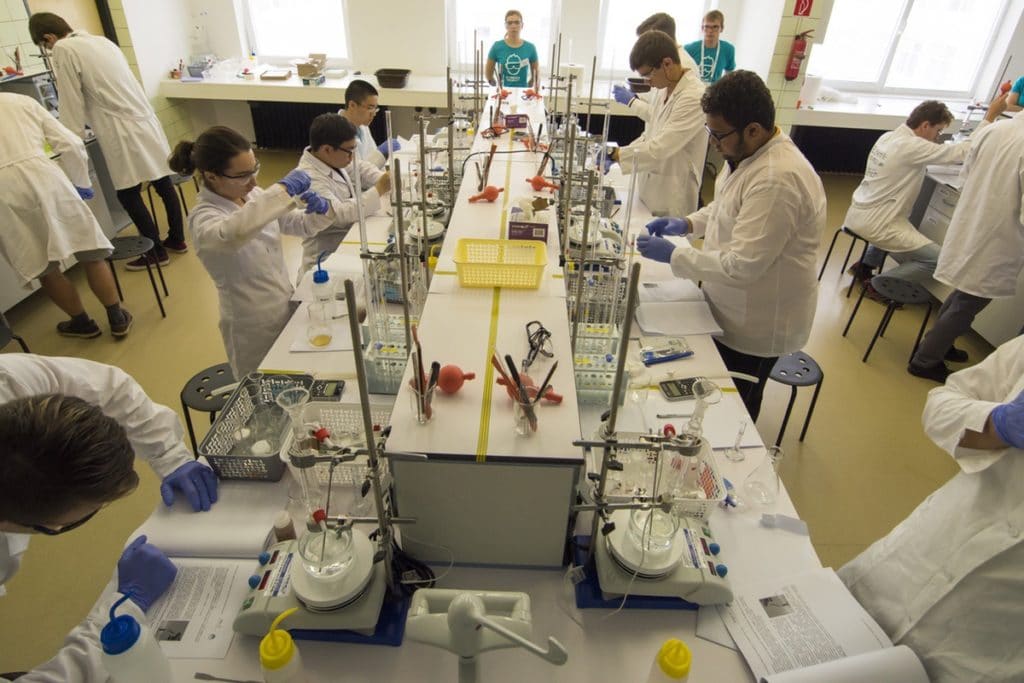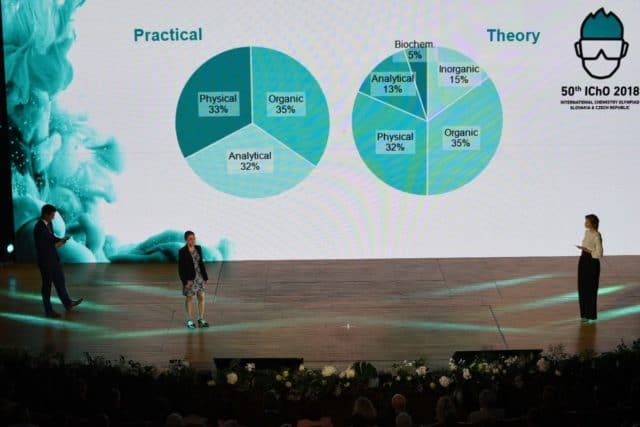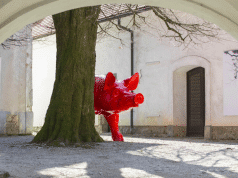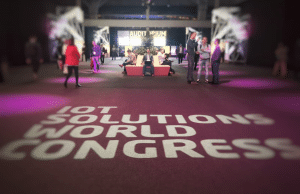On 19-29 July 2018, the Czech Republic and Slovakia hosted the 50th International Chemical Olympiad, an annual competition for the world’s most talented chemistry students at the secondary school level.
The opening ceremony of the competition took place in Stará Tržnice (Bratislava) on July 20th and the winners were awarded at the results ceremony, which took place eight days later in Rudolfinum (Prague).
The International Chemistry Olympiad (IChO) is an annual competition for the world’s most talented chemistry students at the secondary school level. Nations around the world send a team of four students who are tested on their chemistry knowledge and skills in a five-hour laboratory practical and five-hour written theoretical examination that are held on separate days with the practical examination usually being before the theoretical examination.
The program is intended to stimulate student interest in chemistry through independent and creative solving of chemical problems. It also aims to promote international contacts in chemistry, friendships between young scientific workers of different nationalities, cooperation among pupils, and exchange of pedagogical and scientific experience in chemistry.

The idea of the International Chemistry Olympiad was developed in the former Czechoslovakia in 1968 and the first International Chemistry Olympiad took place in Prague between 18th and 21st June 1968. The event has been held every year since then, with the exception of 1971. The delegations that attended the first events were most countries of the former Eastern bloc and it was not until 1980, the 12th annual International Chemistry Olympiad, that the event was held outside of the bloc in Austria.
This year over 300 from 76 countries participated in the International Chemistry Olympiad.
All participants were ranked based on their individual scores and no official team scores were given. Gold medals were awarded to the top 12% of students, silver medals were awarded to the next 22% of students, and bronze medals were awarded to the next 32% of students. Honorable mentions were awarded to participants that do not win a medal but score a perfect problem in either the theoretical or the practical examination. One special award is given to the student that achieves the highest score overall. Two separate special awards are given to the students who get the best score in the theoretical and practical examinations.














